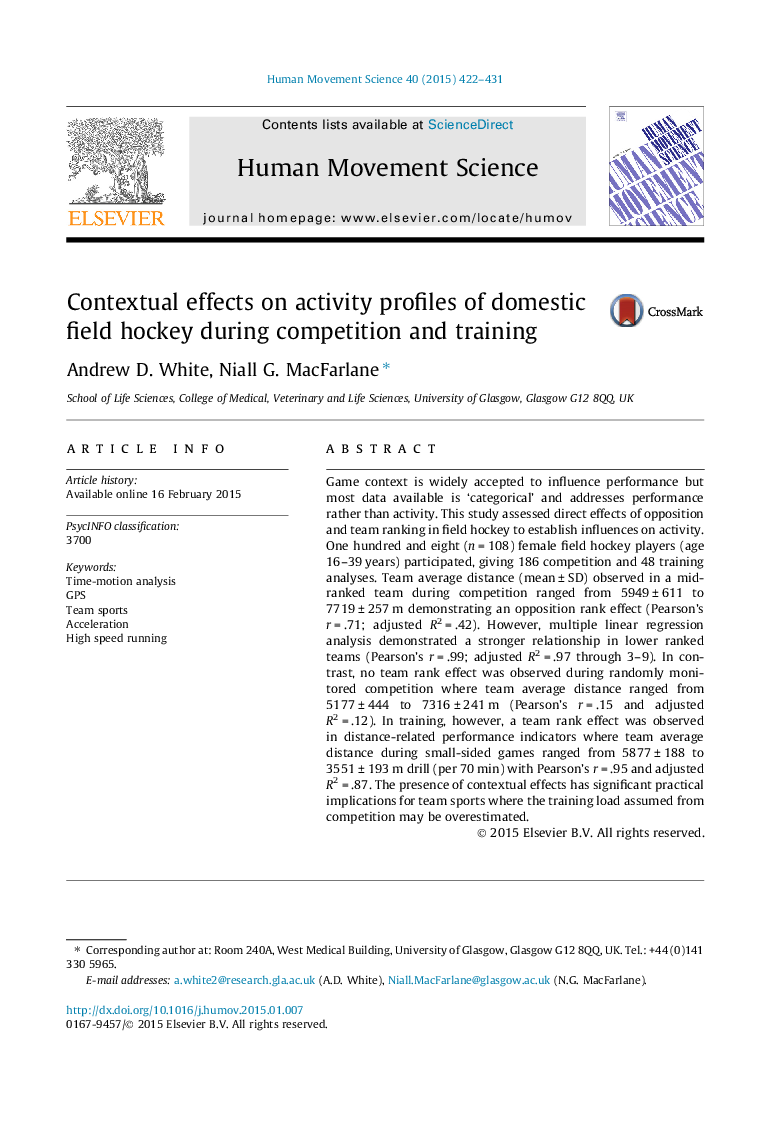| Article ID | Journal | Published Year | Pages | File Type |
|---|---|---|---|---|
| 7292198 | Human Movement Science | 2015 | 10 Pages |
Abstract
Game context is widely accepted to influence performance but most data available is 'categorical' and addresses performance rather than activity. This study assessed direct effects of opposition and team ranking in field hockey to establish influences on activity. One hundred and eight (n = 108) female field hockey players (age 16-39 years) participated, giving 186 competition and 48 training analyses. Team average distance (mean ± SD) observed in a mid-ranked team during competition ranged from 5949 ± 611 to 7719 ± 257 m demonstrating an opposition rank effect (Pearson's r = .71; adjusted R2 = .42). However, multiple linear regression analysis demonstrated a stronger relationship in lower ranked teams (Pearson's r = .99; adjusted R2 = .97 through 3-9). In contrast, no team rank effect was observed during randomly monitored competition where team average distance ranged from 5177 ± 444 to 7316 ± 241 m (Pearson's r = .15 and adjusted R2 = .12). In training, however, a team rank effect was observed in distance-related performance indicators where team average distance during small-sided games ranged from 5877 ± 188 to 3551 ± 193 m drill (per 70 min) with Pearson's r = .95 and adjusted R2 = .87. The presence of contextual effects has significant practical implications for team sports where the training load assumed from competition may be overestimated.
Related Topics
Life Sciences
Neuroscience
Cognitive Neuroscience
Authors
Andrew D. White, Niall G. MacFarlane,
